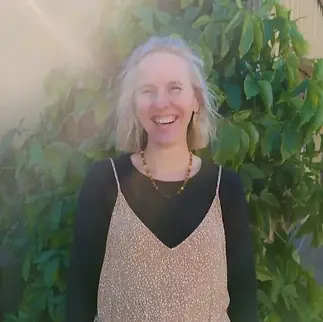

About Me

Hi, I’m Simone – Welcome!
I’m a proud Bundaberg local, a mum to three, and a very lucky grandmother to three beautiful grandchildren. My journey into Social Work was inspired by a deep desire to support others through life’s challenges and to help people create meaningful, positive change in their lives.
Working with children and families is something I consider a true privilege. I find so much joy in helping children learn new skills, build confidence, and overcome challenges, and I absolutely love being part of their journey. I bring creativity, fun, and a whole lot of heart to my work (yes, I’ll happily sing Baby Shark, even if I’m a little off-key!).
With a child at heart spirit, my passion lies in supporting children and their parents or carers. Over the years, I’ve had the opportunity to work with children, young people, and families facing a wide range of life experiences. I’m especially passionate about supporting children with developmental delays, disabilities, mental health challenges, and those who have experienced trauma, including family violence and all forms of abuse.
In my practice, I take a strength-based, family-centred approach and hold strong values around equality, respect, and empowerment. I’m a registered Social Worker with the Australian Association of Social Workers (AASW) and deeply committed to providing a safe, supportive space for every child and family I work with.
The Role of Social Work in Supporting Children and Families
Social Work is a professional, values-based discipline focused on empowering individuals, advocating for social justice, and enhancing wellbeing. Social Workers are uniquely trained to understand the complex interaction between a person and their environment, which is especially important when working with children and families facing developmental, emotional, or social challenges.
Social Work and the NDIS
Within the NDIS framework, Social Workers play a vital role in supporting children and their families to build capacity, strengthen relationships, and achieve meaningful goals. Services are tailored to each child’s needs and delivered in collaboration with families, educators, and other professionals.
Social Workers can support NDIS participants through:
-
Emotional and behavioural support for children with developmental delays, disabilities, or trauma
-
Capacity building in daily living, social skills, emotional regulation, and problem-solving
-
Supporting parents and carers with strategies, resources, and advocacy
-
Trauma-informed care, particularly in cases of family violence, grief, or abuse
-
Collaboration with schools and early learning settings to support learning and participation
-
Connecting families with local services and community supports
NDIS funding areas that Social Workers may work within include:
-
Therapeutic Supports
-
Improved Daily Living
-
Early Childhood Early Intervention (ECEI)
-
Support for Behavioural and Emotional Regulation
Qualifications and Professional Standards
In Australia, to become a qualified Social Worker, a person must complete an accredited Bachelor or Master of Social Work through a recognised university. This includes extensive training in areas such as human development, mental health, counselling, child protection, and social policy, alongside practical field education placements.
All practicing Social Workers should be registered members of the Australian Association of Social Workers (AASW)—the national professional body that sets the ethical, educational, and practice standards for Social Work in Australia.
AASW membership ensures that Social Workers:
-
Meet professional and academic requirements
-
Adhere to a strict Code of Ethics
-
Commit to ongoing professional development and reflective practice
-
Uphold the values of respect, integrity, social justice, and professional integrity
As a registered Social Worker and AASW member, I am committed to providing ethical, high-quality, and family-centred care. I bring a compassionate, strengths-based approach to my work, helping children and families feel heard, supported, and empowered throughout their journey.